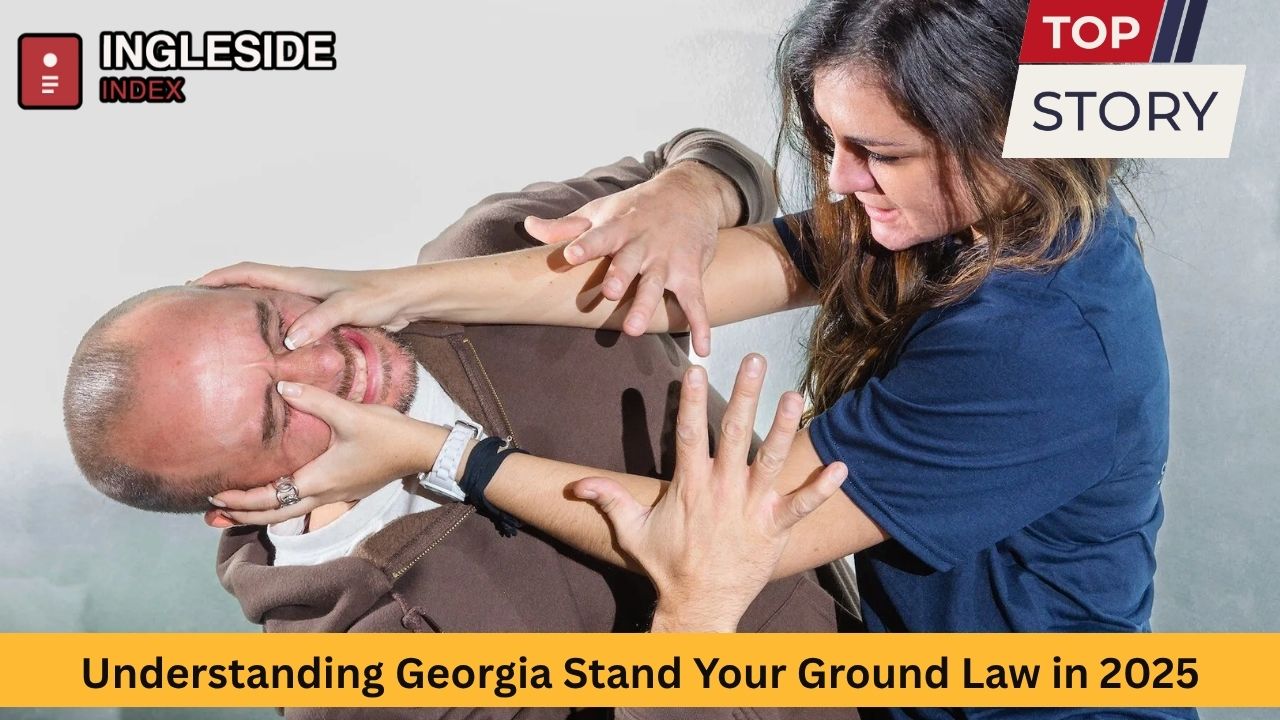Georgia stands at the crossroads of tradition and evolving public safety norms, balancing community protection with individual rights. The “Stand Your Ground” law has long been the subject of debate among lawmakers, law enforcement, and citizens alike. In 2025, understanding this law involves more than knowing legislation; it requires exploring its impact, the facts driving its enforcement, variations by city, and its societal ripple effects.
This comprehensive guide offers clarity on Georgia’s Stand Your Ground law, revealing how it operates, affects local communities, and shapes the broader landscape of justice and safety.
The Core of Stand Your Ground Law
Georgia’s Stand Your Ground law is embodied in state statutes, emphasizing the right of individuals to defend themselves without the duty to retreat. Under this law, anyone who reasonably perceives an imminent threat of severe bodily harm or a forcible felony is permitted to use necessary force, up to and including deadly force. This principle holds true regardless of the location—whether in one’s home, a city street in Atlanta, a business in Macon, or a parking lot in Albany.
The legislation reflects the belief that individuals should not have to pause or flee in the face of danger, but instead assert the right to self-protection if threatened.
Historical and Legal Foundation
The Stand Your Ground law in Georgia is an extension of the “castle doctrine,” a legal concept asserting the right to use reasonable or deadly force to defend one’s home or “castle.” However, Stand Your Ground removes the spatial limitation of the castle doctrine, expanding the right to any place a person lawfully occupies.
This legal framework has been shaped by years of statutes and judicial decisions. In Georgia, such rules are codified, confirming that there is no legal requirement to retreat before using force in self-defense or the defense of others and property.
How the Law Applies: Key Principles
No Duty to Retreat
Georgia law is unambiguous: if you face a threat, you are not required to attempt escape. Whether in Savannah, Augusta, or the suburbs of Roswell, the law grants the right to “stand your ground” and respond proportionately.
Proportionality and Reasonableness
The force used in self-defense must be deemed reasonable under the circumstances. If an individual in Columbus is threatened with a weapon, the use of comparable force—including deadly force—may be justified. However, responding to a non-deadly threat, such as a verbal argument, with deadly force would not align with the law’s requirements.
Locations Covered
Stand Your Ground protections are expansive within Georgia:
-
Private residences, including homes and apartments
-
Public spaces such as streets and parks in cities like Marietta and Valdosta
-
Businesses and workplaces
-
Vehicles
Who Is Protected
The law covers anyone lawfully present at a location, not just property owners or residents. Visitors, tenants, and employees can assert this defense. However, protection does not extend to those committing a crime or acting as the initial aggressor.
Self-Defense vs. Aggression
A crucial distinction embedded in the legal system is intent. The Stand Your Ground law is designed to protect those who act purely in self-defense. If a person in Sandy Springs initiates violence or provokes an altercation, they cannot claim Stand Your Ground immunity. The law scrutinizes whether fear of harm was sincere and reasonable.
Legal and Criminal Consequences
The Role of Law Enforcement
When a shooting or violent encounter occurs, law enforcement will investigate to determine:
-
Was the use of force reasonable?
-
Was there a genuine imminent threat?
-
Was the person claiming self-defense engaged in legal activity?
This process is consistent across cities from Warner Robins to Athens. Officers on the scene will gather evidence, speak with witnesses, and make an initial judgment about the application of Stand Your Ground.
The Court Process
If criminal charges are filed despite a claim of self-defense, Georgia courts carefully examine:
-
The nature of the threat
-
The proportionality of the response
-
The prior conduct of all individuals involved
-
Physical and forensic evidence
Defense attorneys in cities like Atlanta and Savannah have built specialties around Stand Your Ground defenses, emphasizing the nuances of each case.
Civil Implications
Even if no criminal charges are filed, individuals who use deadly force may face civil lawsuits. Surviving family members or injured parties might seek damages, contending the force was excessive or unwarranted. Such legal battles are common in larger cities with higher crime rates, including Atlanta, Columbus, and Augusta.
Impact on Georgia Communities: Statistics and Trends
Overview of Crime and Self-Defense
Georgia’s overall violent crime rate in 2025 hovers above the national average, with notable differences among its cities. This climate influences both the use of self-defense and the public’s reliance on Stand Your Ground statutes.
-
Atlanta’s violent crime rate stands at about 4.0 per 1,000 residents. The city’s crime dynamics include fluctuations in robberies and assaults, even as certain neighborhoods become progressively safer.
-
College Park has a violent crime rate exceeding 1,500 per 100,000 residents, the highest among Georgia cities. Property crime also remains a persistent issue.
-
Other high-crime cities like Macon, Albany, Griffin, and East Point report elevated risks of assault, robbery, and burglary.
Patterns in Stand Your Ground Case Usage
In recent years, the number of cases involving Stand Your Ground defenses has risen, particularly in urban centers where crime rates and self-defense concerns are highest. Courts in counties surrounding Atlanta, Savannah, and Macon report more frequent invocation of the statute in both minor altercations and lethal force cases.
Research on Effects
Large-scale studies link Stand Your Ground laws nationally to increased homicide rates. In Georgia, these trends mirror findings from studies showing a rise in both homicides and firearm-related deaths following adoption of such laws. While the law is intended to deter crime and empower self-protection, evidence has not consistently shown a decrease in burglaries, robberies, or assaults. In fact, some cities report a noticeable increase in justifiable homicide claims compared to previous years.
Major Cities and Their Experiences
Atlanta
As the state capital and most populous city, Atlanta’s relationship with the Stand Your Ground law is closely watched. The city’s higher-than-average violent crime rate drives public interest in self-defense, resulting in numerous high-profile legal cases each year. Neighborhoods like Buckhead remain among the safest, but incidents in downtown and southwest areas often draw media scrutiny.
College Park
Close to Hartsfield-Jackson International Airport, College Park grapples with high rates of robbery, theft, and assault. The frequency of violent crimes means residents are more aware—and sometimes more reliant—on Stand Your Ground protections, both in personal encounters and home invasions.
Macon, Griffin, Albany, and East Point
These mid-sized cities experience higher than average rates of both violent and property crimes. In Macon, for example, ongoing issues with drug crimes contribute to an elevated homicide rate. Griffin and East Point face gang activity, fueling the kinds of situations where citizens may rely on Stand Your Ground justifications.
Savannah and Augusta
Savannah, with its vibrant tourism sector, and Augusta, renowned for the Masters golf tournament, see relatively lower crime rates. However, self-defense scenarios still occur, especially in less affluent neighborhoods or during late-night hours.
Safer Cities: Senoia, Holly Springs, Milton, and Others
Contrast is clear when examining Georgia’s safest cities. Senoia, Douglas, Holly Springs, and Milton enjoy low violent crime rates, resulting in fewer Stand Your Ground cases. Residents here express a higher sense of safety, though the law remains on the books for rare emergencies.
How Stand Your Ground Shapes Citizen Behavior
Increased Security Awareness
Rising crime in cities like Atlanta, College Park, and Griffin drives residents to invest in home security, personal safety devices, and community watch programs. Smart security systems and CCTV surveillance are becoming the norm in neighborhoods once considered low-risk.
Community Debates
The Stand Your Ground law is polarizing. In urban areas, some view it as a necessary response to escalating violence, while others fear it may embolden unnecessary or escalated confrontations. Community forums and local government meetings across Georgia often devote discussion to refining the law’s application, especially amid cases that capture statewide attention.
Perceptions of Safety
Surveys suggest only about a third of Georgians feel safe in their state, while concerns about violent encounters persist even in safer towns. The presence of Stand Your Ground law is both an assurance and a source of anxiety, reflecting broad divides in public opinion.
Justifiable Homicide and High-Profile Cases
Over the years, Georgia has witnessed several high-profile cases involving the Stand Your Ground law. Outcomes depend on thorough investigations, evidence gathered by law enforcement, and the interpretations made by prosecuting and defense attorneys.
Some cases have resulted in acquittal thanks to clear evidence of imminent threat, while disputed or ambiguous shootings often proceed to trial, testing the boundaries of reasonable force.
Criticisms and Calls for Reform
While Stand Your Ground laws empower individuals, they are not without critics. Opponents argue that the statute is sometimes misused, leading to avoidable escalations in violence or making it harder to bring charges in ambiguous incidents.
Legal scholars and advocacy groups periodically call for reforms, suggesting the law should:
-
Include more explicit guidelines on proportional force
-
Require more stringent evidence for Stand Your Ground claims
-
Apply stricter scrutiny to aggressor/victim roles
There are ongoing efforts in the Georgia legislature to examine potential amendments, though as of 2025, the core protections remain largely intact.
Practical Guidance for Georgia Residents
Knowing Your Rights
Whether you live in Decatur, Johns Creek, or Valdosta, it’s essential to be aware of your rights under Stand Your Ground law:
-
You have the right to defend yourself and others from imminent harm anywhere you are legally present.
-
You are not obligated to attempt to escape before acting, but your response must be reasonable.
-
You cannot claim Stand Your Ground if you are the initial aggressor or acting illegally.
Interacting with Law Enforcement
If involved in a self-defense incident:
-
Remain calm and cooperate fully with law enforcement.
-
State that you acted in self-defense, but request an attorney before making detailed statements.
-
Avoid tampering with evidence or the crime scene.
Seeking Legal Counsel
Engaging a qualified criminal defense attorney is crucial. Legal experts in cities like Atlanta, Savannah, and Augusta can provide guidance specific to the facts of your case and ensure your rights are upheld.
Community Watch and Education
Much of Georgia’s population benefits from active neighborhood watches, self-defense classes, and community workshops. These initiatives, particularly in cities facing higher crime, foster resilience and preparedness.
Stand Your Ground Statistics Table
| City | Violent Crime Rate (per 1,000 residents) | Notable Factors |
|---|---|---|
| Atlanta | 4.0 | Decline in robberies and assaults |
| College Park | 15+ | High rates of robbery and theft |
| East Point | ~14.7 | Gang activity, assaults |
| Macon | High | Drug-related violent crime |
| Albany | Rising | Growing violent crime |
| Griffin | High | Elevated assaults |
| Senoia | Low | Among the safest cities in Georgia |
| Milton | Low | Low property and violent crime |
| Holly Springs | Low | Family-friendly, safe community |
Conclusion
Understanding Stand Your Ground law in Georgia in 2025 is vital for anyone concerned about safety and justice. The law reflects Georgia’s resolve to balance individual rights with the collective need for order. Its application varies widely across the state’s cities, influenced by local crime rates, public attitudes, and evolving societal norms.
From Atlanta’s busy streets to Savannah’s historic squares, the question of when and how to assert the right of self-defense is more than legal theory—it’s a question affecting daily life. Staying informed, acting responsibly, and contributing to ongoing community conversations remain the best ways for all Georgians to navigate the complexities of Stand Your Ground in the years ahead.




